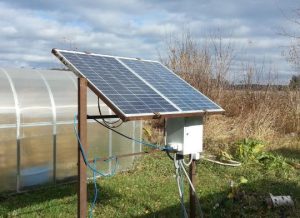How Long Can Solar Panels Store Energy?
In the dialogue about renewable energy, solar panels are often lauded for their ability to convert sunlight into electricity. However, a common misconception surrounds their capability to store energy. Solar panels, in and of themselves, do not store energy; rather, it’s the solar energy storage systems, like batteries, that hold the key to retaining solar power for later use. This distinction is crucial for understanding how long can solar panels store energy when discussing the broader system that includes energy storage solutions.

Solar Panels vs. Solar Batteries: Clarifying the Confusion
- Solar Panels: These devices are designed to convert sunlight into electrical energy immediately. They are most effective during daylight hours, especially under direct sunlight, but do not have the capacity to store energy.
- Solar Batteries: Energy storage solutions, such as solar batteries, are what allow solar energy to be stored. These batteries store the electrical energy generated by solar panels, making it available for use during non-sunny periods, such as nighttime or during power outages.
Energy Storage Capacity and Duration
The capacity of solar batteries to store energy is measured in kilowatt-hours (kWh). Modern residential solar battery systems typically range from 5 kWh to 15 kWh per unit, with the possibility to link multiple batteries for higher storage capacity. The duration for which a solar battery can provide power depends on:
- Battery Capacity: Larger batteries can store more energy, providing power for a longer period.
- Household Energy Consumption: The average U.S. household consumes about 877 kWh per month, but this figure varies widely. Lower consumption extends the duration a battery can last.
- Energy Efficiency Measures: Homes employing energy efficiency measures, like LED lighting and ENERGY STAR appliances, will stretch the stored energy further.
Real-World Application
In a typical scenario, a 10 kWh solar battery fully charged during the day could power an average household’s evening and nighttime usage, which might range from 2 to 8 kWh, depending on consumption habits and efficiency. This means that, in ideal conditions, a home could run off stored solar energy alone for anywhere from one night to several days without sunlight, provided the system is adequately sized and the home is energy-efficient.
Advancements in Solar Storage Technology
The field of solar energy storage is rapidly advancing, with newer technologies like lithium-ion batteries offering higher efficiency, longer life spans, and greater capacity than older lead-acid counterparts. Innovations continue to push the boundaries of how much energy can be stored and for how long, improving the feasibility of solar power as a primary energy source for homes and businesses.
Conclusion
While solar panels themselves do not store energy, the integration of solar batteries into a solar energy system enables the storage of excess power for later use. The question of how long can solar panels store energy essentially boils down to the specifications of the solar batteries used in conjunction with the panels. As technology progresses, the potential for longer storage periods and more efficient energy use from solar installations continues to grow, paving the way for a more sustainable and independent energy future.